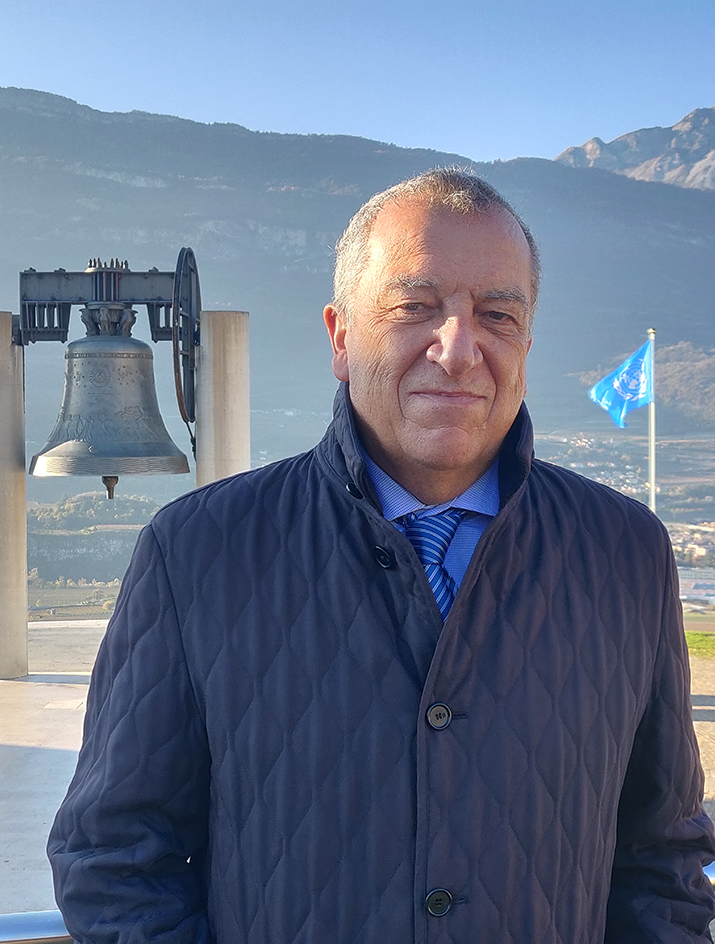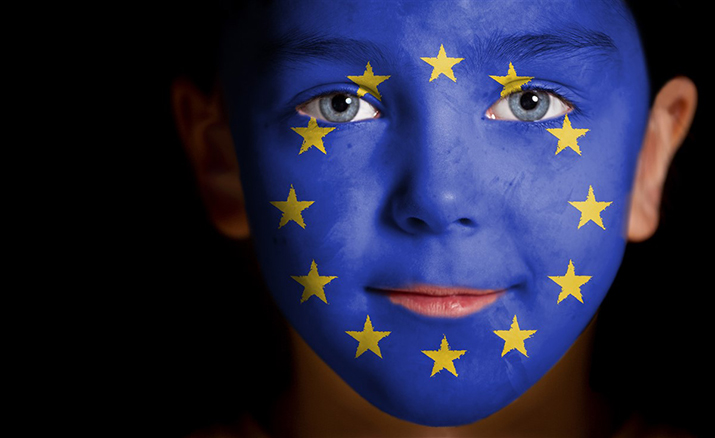NINTH OF MAY EUROPE DAY
AN IRREVERSIBLE PROCESS
When - several decades ago now - leaders of the governments believed that the time had come to identify a day to celebrate Europe in the calendar their choice was directed, without hesitation, towards a “Europe Day” on 9 May. In fact, two events of great significance occured on this date: first, the definitive Nazi capitulation in 1945 which put an end to the horrors of the Second World War; then, five years later, the public presentation by the then French Foreign Minister Schuman (German by origin, a not entirely insignificant detail) of the Declaration bearing his name. It is considered the point of initiation and at the same time of no return, of the European cooperation project destined, through a series of challenging intermediate stages, to give life to today's European Union.
Robert Schuman, the German Chancellor Konrad Adenauer and our fellow countryman Alcide De Gasperi, who was Prime Minister on several occasions, are universally recognized as having made this process irreversible. On closer inspection, by choosing May 9, the European heads of state and government intended to highlight two essential basic concepts, on which to validate, without exception, all subsequent decisions. In the first place, the European territory, devastated in just over twenty years by two appalling fratricidal wars, would be transformed from that moment on into an area of peace and civil coexistence between nations and their respective populations.
On May 9, 1950, with the Schuman Declaration, the cooperation project destined to give life to the European Union was born
In addition, gradually increasing forms of interaction, economical, financial and political, would contribute to guaranteeing levels of prosperity and social well-being in the European area (initially made up of only 6 founding countries, including Italy) which would be - in the words of another great pro-European, Jean Monnet - unattainable by the individual nation states, in consideration of their small size.
From our standpoint today, we must recognize that these fundamental commitments have been kept over the years. An objective assessment of the facts leads us to note, and it is true, that in its long journey, the "European ideal" has also known less fortunate moments. Without recalling more distant precedents, the bloody Balkan conflict of the 1990s comes to mind and, more recently, the unprecedented, and consequently traumatic, abandonment of the Union by one of its members, Great Britain, at the conclusion of the "Brexit". In addition, the procedures implemented by Brussels to coordinate measures in order to combat the pandemic in progress were not without criticism, according to a significant number of evaluations.
Despite some inevitable attenuation, however, it must be admitted that the wide-ranging vision of the "founding fathers" confirms its full validity even today, reaffirming the correctness of the motto in varietate concordia that they devised for the new community structure.
In fact, the European Union represents an ideal means through which to successfully overcome the global challenges of the 21st century which need to be faced on an equal footing with the other major players in the international situation, the United States and China. Within its territory, there is the freedom of movement of goods, capital and services, while the single currency, in addition to facilitating our everyday life, has positive effects on price transparency. Without mentioning the fact that there are now over 4 million students who have availed of the "Erasmus" program in order to experience university life in countries other than their own and that the "Schengen area" allows free movement between member states in the absence of any customs control. Also, the list of made in Europe benefits could be much broader, if we included additional collaboration sectors common in all "27" member states, such as agriculture, the environment and culture among others.
Returning to the initial considerations, from the moment of its establishment "Europe Day" has been animatedly celebrated in Brussels and Strasbourg, as well as other EU capitals with ceremonies of various kinds. With them, a prominent role has usually been reserved for open door initiatives. Through such initiatives the headquarters of the Institutions, including the decision-making "sancta sanctorum", have been made accessible to ordinary citizens, often encouraged - through specific simulation processes - not only to attend reproductions of sessions of Parliament or of other community bodies, but also to take part actively by assuming the role, albeit only "honorary" and for one day only, of members of the Institutions.
Despite some inevitable attenuation, the wide-ranging vision of the "founding fathers" confirms its full validity even today
Due to the emergence of the virus, for the first time in many years, 2020 led to the interruption of this highly popular tradition, replaced by a series of virtual events, still useful, in order to make up for the inevitable physical distancing.
At the time of writing, it seems that, albeit with a series of limitations, in 2021 it will be possible to re-propose meetings "in person". The homage that our Foundation intends to pay to Europe will therefore be significant even if it is of necessary small proportions. Fortunately, free from such earthly conditioning, Maria Dolens will not fail in any case, on 9 May, to dedicate her evening tolls also to European ideals, trusting that they may even emerge strengthened, in terms of cohesion and solidarity, from the difficult test with which we have all been confronted for over a year.
A few days earlier, on May 5, our Bell will be sure to address a sympathetic thought also to the Council of Europe, which will commemorate the 72nd anniversary of meritorious and irreplaceable activity in favor of the principles of democracy, the rule of law and the affirmation of human rights.
"Reggente" Marco Marsilli, Foundation President


March 19, 1958: Robert Schuman chairs the first meeting of the Parliamentary Assembly of the EEC






